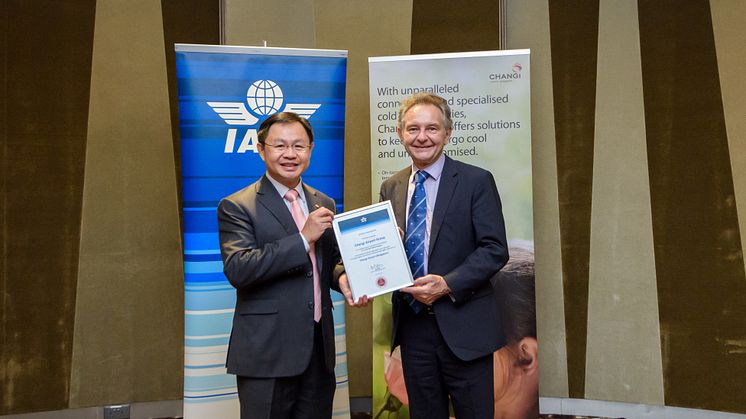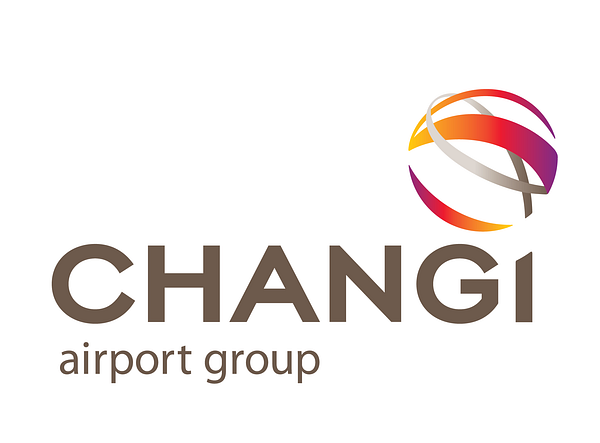
Press release -
Changi Airport Group launches a community initiative to enhance pharmaceutical handling excellence across supply chain
Changi Airport Group (CAG) announced today that it will be the first airport in Asia to launch a community of cargo partners whom it will support to pursue the attainment of the International Air Transport Association’s (IATA) Center of Excellence for Independent Validators on Pharmaceutical Handling (CEIV Pharma) certification – strengthening Changi’s capabilities to handle pharmaceutical cargo.
The IATA CEIV Pharma is a standardised global certification programme that helps companies comply with existing global pharmaceutical guidelines.[1] For instance, companies undergoing this certification process will have to maintain a cargo hold temperature setting of between 10-25 degrees Celsius and ensure appropriate handling from tarmac to loading and unloading. Under the programme, companies will have to undergo training, as well as an assessment of their facilities and processes by independent, IATA-certified auditors to satisfy the strict requirements on pharmaceutical handling before receiving the certification.
CAG will be supporting six companies from different parts of the air cargo supply chain to undergo this certification programme, through cost support measures and the coordination of training sessions. The Civil Aviation Authority of Singapore (CAAS) and Singapore Workforce Development Agency (WDA) will also co-fund the costs for these companies through the provision of assistance grants. The pioneer group of companies in the Changi CEIV Community consists of SIA Cargo (freighter carrier), dnata Singapore (airport ground handler), Global Airfreight International, Expeditors Singapore, CEVA Logistics Singapore, and Schenker Singapore (freight forwarders). SATS Coolport, a major cargo player at Changi Airport, was the first facility in the world to attain the IATA CEIV Pharma certification in 2014. CAG will progressively work with more cargo partners to attain this certification.
Mr Yam Kum Weng, Executive Vice President, Air Hub & Development, Changi Airport Group, said, “Pharmaceutical cargo is one of the fastest growing cargo segments in Changi Airport, and one that CAG is actively promoting. Transporting high-value, temperature-sensitive pharmaceutical cargo can be complex due to the multiple requirements. Today, with dedicated cold chain handling facilities by key cargo partners at Changi, coupled with our excellent connectivity, Changi is well-positioned to be a leading pharmaceutical and biotechnology hub in Asia. Through the IATA CEIV Pharma certification programme, CAG and our partners go one step further by taking a proactive approach in enhancing our cold chain handling capabilities to better serve the pharmaceuticals industry, further strengthening Changi’s position as a major cargo hub in the world.”
Said Conrad Clifford, IATA’s Regional Vice President, Asia Pacific, “The air cargo value chain has an important role in the transportation of life-saving pharmaceutical products and medicines to markets where they are needed, while ensuring the integrity of these pharmaceutical products. Last year, the global pharmaceutical industry spent over US$10 billion on cold chain logistics, with the amount expected to exceed US$13 billion by 2019. The establishment of a CEIV-Pharma Certified community will position Changi Airport and Singapore as a regional leader at the forefront of this fast growing segment. I encourage other airports in the Asia Pacific region to follow Changi’s example and partner with IATA to establish similar communities as well.”
Mr Tay Tiang Guan, Deputy Director-General, Civil Aviation Authority of Singapore said, “CAAS is pleased to support this effort to attain certification across the entire air cargo handling chain in Singapore. This will raise handling standards to better meet the stringent handling requirements of our growing pharmaceuticals sector, strengthening Singapore’s position as an aviation hub of choice for pharmaceuticals air freight.”
Mr Ang Chai Soon, Director, Manufacturing Division, WDA, said, “Pharmaceuticals handling is an area of logistics with good growth potential. Through the workshops, participants will be equipped with the specialised skills and knowledge to implement IATA CEIV (Pharmaceutical Handling) standards in their companies, which will in turn enhance their competitiveness.”
A leading cargo hub in Asia and among the top 10 in the world, Changi handled 1.85 million tonnes of cargo in 2015. Pharmaceuticals are one of the best performing cargo segments, growing a robust 45% year-on-year in 2015.
[1] European Union Good Distribution Practice and World Health Organization Annex 5
Topics
Categories
About Changi Airport Group
Changi Airport Group (Singapore) Pte Ltd (CAG) (www.changiairportgroup.com) was formed on 16 June 2009 and the corporatisation of Singapore Changi Airport (IATA: SIN, ICAO: WSSS) followed on 1 July 2009. As the company managing Changi Airport, CAG undertakes key functions focusing on airport operations and management, air hub development, commercial activities and airport emergency services. CAG also manages Seletar Airport (IATA: XSP, ICAO: WSSL) and through its subsidiary Changi Airports International, invests in and manages foreign airports.
Changi Airport is the world's sixth busiest airport for international traffic. It served a record 55.4 million passengers from around the globe in 2015. More than 360 retail stores and 140 F&B outlets are situated across three terminals to cater to passengers and visitors. With over 100 airlines providing connectivity to 320 cities worldwide, Changi Airport handles about 6,800 flights every week, or about one every 90 seconds.


